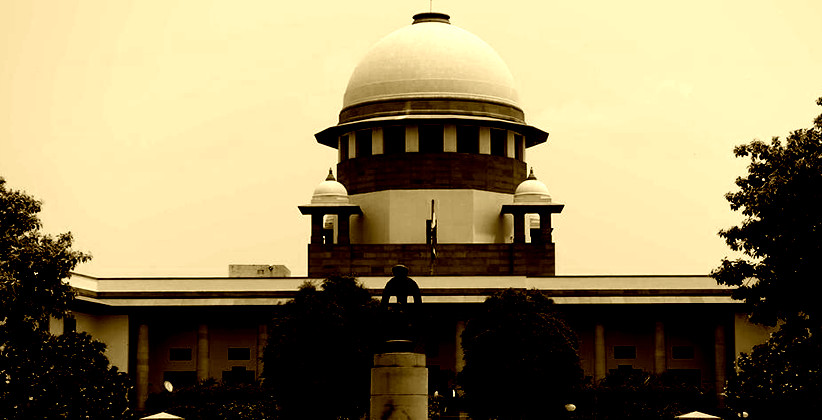The Supreme Court on August 27, 2019, in the case of Khuman Singh v. State of MP has reiterated that in order to sustain a conviction under Section 3(2)(v) of the Scheduled Castes and Scheduled Tribes (Prevention of Atrocities) Act, 1989, it must be proved that the offence was committed only on the ground that the victim was a member of the Scheduled Caste or Scheduled Tribe.
The Bench comprising of Justice R. Banumathi and Justice A.S. Bopanna passed the ruling while hearing an appeal against the Madhya Pradesh High Court which affirmed the conviction of the appellant-accused under Section 3(2)(v) of the Scheduled Castes and Scheduled Tribes (Prevention of Atrocities) Act, 1989 and the sentence of life imprisonment imposed upon him.
In this case, both the Trial Court and the High Court recorded the finding that the accused scolded the deceased that he belongs to "Khangar" Caste and how he could drive away the cattle of the person belonging to "Thakur" Caste and therefore, thus concluded that the accused has committed the offence under Section 3(2)(v) of the Scheduled Castes and Scheduled Tribes (Prevention of Atrocities) Act.
In appeal, however, the Supreme Court Bench set aside the conviction of the accused on the ground that there is nothing to suggest that the offence was committed by the accused only because the deceased belonged to a Scheduled Caste.
The Bench referred to the apex court judgment in Dinesh alias Buddha v. State of Rajasthan and observed that As held by the Supreme Court, the offence must be such so as to attract the offence under Section 3(2)(v) of the Act. The offence must have been committed against the person on the ground that such person is a member of Scheduled Caste and Scheduled Tribe. In the present case, the fact that the deceased was belonging to "Khangar"-Scheduled Caste is not disputed. There is no evidence to show that the offence was committed only on the ground that the victim was a member of the Scheduled Caste and therefore, the conviction of the appellant-accused under Section 3(2)(v) of the Scheduled Castes and Scheduled Tribes (Prevention of Atrocities) Act is not sustainable.









